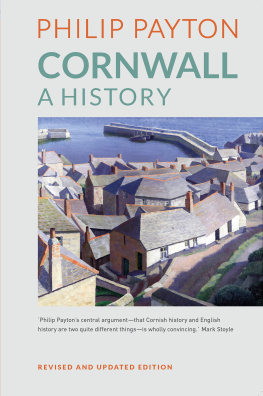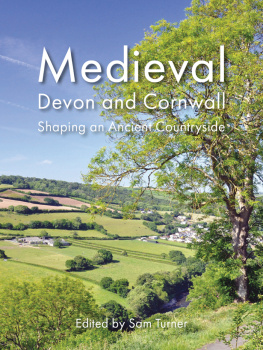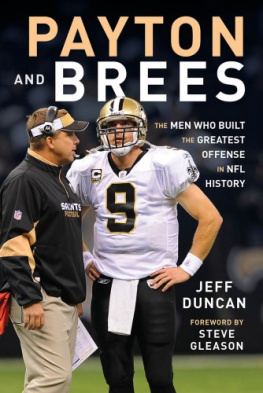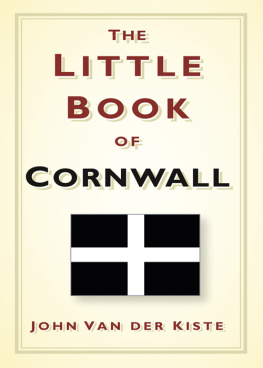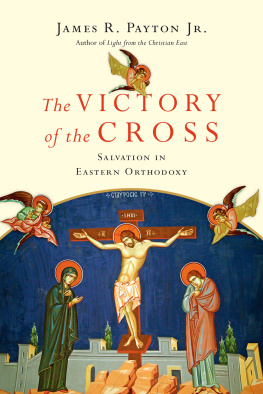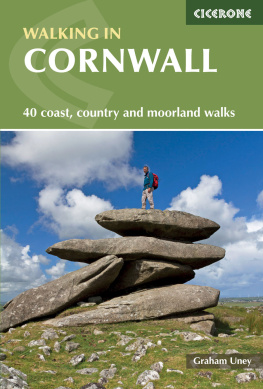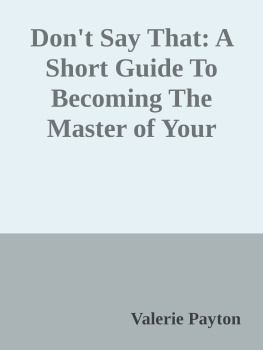Professor Philip Payton - Cornwall
Here you can read online Professor Philip Payton - Cornwall full text of the book (entire story) in english for free. Download pdf and epub, get meaning, cover and reviews about this ebook. year: 2017, publisher: University of Exeter Press, genre: Romance novel. Description of the work, (preface) as well as reviews are available. Best literature library LitArk.com created for fans of good reading and offers a wide selection of genres:
Romance novel
Science fiction
Adventure
Detective
Science
History
Home and family
Prose
Art
Politics
Computer
Non-fiction
Religion
Business
Children
Humor
Choose a favorite category and find really read worthwhile books. Enjoy immersion in the world of imagination, feel the emotions of the characters or learn something new for yourself, make an fascinating discovery.
- Book:Cornwall
- Author:
- Publisher:University of Exeter Press
- Genre:
- Year:2017
- Rating:5 / 5
- Favourites:Add to favourites
- Your mark:
- 100
- 1
- 2
- 3
- 4
- 5
Cornwall: summary, description and annotation
We offer to read an annotation, description, summary or preface (depends on what the author of the book "Cornwall" wrote himself). If you haven't found the necessary information about the book — write in the comments, we will try to find it.
Cornwall — read online for free the complete book (whole text) full work
Below is the text of the book, divided by pages. System saving the place of the last page read, allows you to conveniently read the book "Cornwall" online for free, without having to search again every time where you left off. Put a bookmark, and you can go to the page where you finished reading at any time.
Font size:
Interval:
Bookmark:

A new edition of Philip Paytons modern classic Cornwall: A History, published now by University of Exeter Press, telling the story of Cornwall from earliest times to the present day.
As the only full-length study of Cornwall to have been written for many years, Cornwall: A History is essential reading for everyone with a passion for, or a passing interest in, Cornwall. The distinctiveness of Cornwall and of the Cornish identity is a constant theme in the book: it argues that in many respects Cornish history is different from English history, and that the Cornish are one of the distinct nationalities of these islands. The book is written in an authoritative but accessible style. This new edition incorporates the latest research and brings the story of Cornwall right up to date, examining the events and debates of the early twenty-first century.
Philip Payton is Emeritus Professor in the University of Exeter and Professor of History at Flinders University in Adelaide, Australia, and is the former Director of the Institute of Cornish Studies in the University of Exeter. He edited Cornish Studies, published annually from 19932013, the only series of publications that seeks to investigate and understand the complex nature of Cornish identity, as well as to discuss its implications for society and governance in contemporary Cornwall.
Revised and updated edition
... a new edition of Cornwall: A History is very welcome indeed. It is a key text for anyone working on the history of the Celtic nations, peoples and languages and a very valuable addition to the literature on modern British history.
Professor Christopher Williams, Cardiff University
Philip Payton is the leader of a new generation of historians exploring Cornwalls ambivalent position within the English state, and questioning the view of Cornwall as just another English county. In this book he argues the case for the Cornish as a separate Celtic people, fully deserving a history of their own, and amply succeeds in his stated aim of bringing that history to the widest possible audience.
Professor Mark Stoyle, University of Southampton
From reviews of the previous edition...
Payton brilliantly brings together myth, fact, people, places, events... gripping.
The Times
... will rank among the classic books on Cornwall, if not the finest ever published.
Western Morning News
... awesomely researched... the essential book for anyone who loves the county.
Observer

Third, revised and updated edition
published in 2017 by
University of Exeter Press
Reed Hall, Streatham Drive
Exeter EX4 4QR
UK
www.exeterpress.co.uk
Philip Payton 1996, 2004 and 2017
The right of Philip Payton to be identified as author of this work has been asserted by him in accordance with the Copyright, Designs and Patents Act 1988.
British Library Cataloguing in Publication Data
A catalogue record for this book is available from the British Library.
ISBNs
EPUB 978 0 85989 232 2
PDF 978 0 85989 227 8
Hardback 978 0 85989 021 2
Paperback 978 0 85989 027 4
Cover image: Early Morning, Newlyn, 1926 (oil on canvas), Procter, Dod (18921972)/Glynn Vivian Art Gallery Collection/ Estate of Dod Procter/Bridgeman Images

Map of Cornwall and the Isles of Scilly
(Tim Absalom, The GeoMapping Unit, Plymouth University)
It is now more than a decade since the appearance of the second edition of Cornwall: A History. The book has been in print for almost the entire period, and only recently has it become more difficult to find, with second-hand copies often selling for inflated prices on on-line sales sites. I am delighted, therefore, that University of Exeter Press has graciously decided to publish a third edition as part of its expanding Cornish list, and I am especially grateful to Simon Baker, my publisher, for his enthusiasm for the project.
Much has happened in Cornwall in recent years, and I have attempted to bring the story up to date by considering some of the more important events, especially on the political front where there have been dramatic and often unexpected developments. It has been fashionable since at least the 1980s to declare that Cornwall is at the cross-roads. Now, in the second decade of the twenty-first century, the phrase rings especially true. On the one hand, Cornwalls identity is expressed with increasing confidence, and the Cornish have won recognition in ways thought unlikely, if not impossible, just a few years ago. At the same time, however, the pressures of development have reached new heights, threatening Cornwalls environmental sustainability and poised to overwhelm Cornishness in a rush to urbanised sameness. How these tensions will be resolved is not yet clear, although the answer must lie in greater devolution of power to Cornwall.
As well as reporting and commenting upon recent developments, I have also taken the opportunity to judiciously update the text where necessary in earlier chapters, taking account of recent research, correcting errors, and replacing clumsy phraseology with more felicitous use of English. As ever, I have been assisted in this by many friends and colleaguesin Cornwall, and here in Australiaand it remains a great privilege to be part of the exciting community of scholars and others writing about Cornwall and the Cornish. And as always, I have been supported by my wife, Deidre, not least as we travel the globe in search of the Cornish, and in her compilation of the index that graces this volume.
Philip Payton,
Flinders University
Adelaide, 2017
A S WE SHALL SEE as the story of Cornwall unfolds in this book, this Cornish land is many things to many people, its history so often contradictory and paradoxical. Cornwall is a far-flung half-forgotten remnant of the Celtic world; or maybe it is the limelit stage upon which the global, earth-shattering acts of the Industrial Revolution were first performed. The Cornish are the last of an ancient race, their moribund way of life fast disappearing in response to the homogenising pressures of international Western culture. Or perhaps, like other ethnic groups across the Continent, the Cornish have at last the self-confidence to express a vibrant separate identity that will ensure their place in the rich regional mosaic of twenty-first century Europe. For outsiders, Cornwall is peace and tranquillity, a haven to which one might retire from the mad rush of modern life; for insiders, Cornwall is often poverty and poor housing and a struggle to make ends meet in a low-wage economy.
But behind this fluidity of interpretation there are certainties, and none more so than the bedrock of the land itself. On cliffs and moors, in architecture, in mines and quarries, in the fabric of the landscape, geology is in Cornwall (for even the most casual of observers) a powerful determinant of territorial character and identity. Thus Cornwall is
Font size:
Interval:
Bookmark:
Similar books «Cornwall»
Look at similar books to Cornwall. We have selected literature similar in name and meaning in the hope of providing readers with more options to find new, interesting, not yet read works.
Discussion, reviews of the book Cornwall and just readers' own opinions. Leave your comments, write what you think about the work, its meaning or the main characters. Specify what exactly you liked and what you didn't like, and why you think so.

